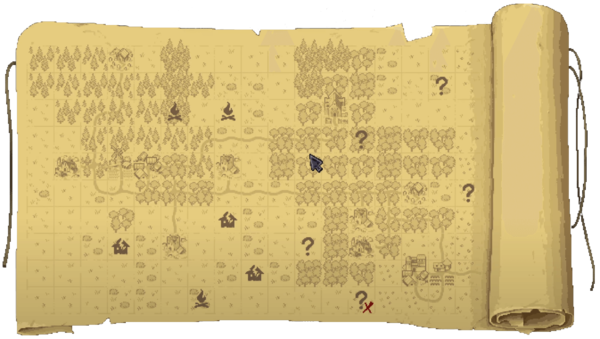Difference between revisions of "Local Map"
m (3 revisions imported) |
SeizureSalad (talk | contribs) |
||
| Line 15: | Line 15: | ||
=== Biomes === | === Biomes === | ||
* Field | * Field | ||
* Forest<br> | * Forest | ||
*Steppe<br> | |||
All Biomes can also spawn with a road. | All Biomes can also spawn with a road. | ||
Revision as of 23:12, 4 September 2022
Local Map serves as the current world of Stoneshard for the Early Access, Way Forward update. A global map is going to be added in the future updates (see Development roadmap).
World Generation
When a New game is created, the local map is randomly generated. The Local Map is split into tiles, where each tile represents a separate game map for the player to explore. The Local Map has a fixed size of 17x10 tiles. Every tile/location is the same size. Currently the player character cannot move past the boundaries of the Local Map. At the start of the game, player receives the Map item, which can be used to display the Local Map depicting the nearby area:
The local map will always contain hidden Points of Interest which need to be explored by the player. All other locations are known to the player, such as the Towns and their surrounding tiles like the Mill or Winery, or the Abbey of the Holy Revelation. Location of these tiles is randomized, but they follow a loose pattern - for example Osbrook is always on the western side of the map, while Mannshire is always on the southeastern side and the Abbey is always in the north/northeastern side. Dungeons are generated semi-randomly - for example, your first (easiest) dungeon will never be on the far side of the map. Forests and Fields are generated randomly and the roads are placed connecting Towns and Dungeons.
Biomes
- Field
- Forest
- Steppe
All Biomes can also spawn with a road.
Towns & Surroundings
- Mannshire
- Mill
- Osbrook
- Winery
Dungeons
- Abbey of the Holy Revelation (location of the Prologue)
- Bastion
- Catacombs
- Crypt













